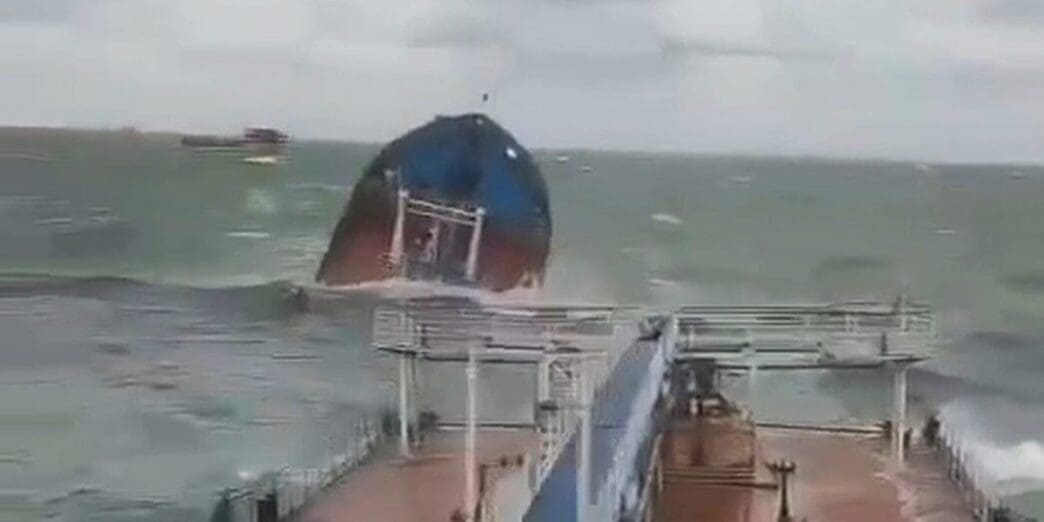A severe storm on Sunday led to a catastrophic oil spill in the Kerch Strait, involving two Russian tankers, Volgoneft 212 and Volgoneft 239, both over 50 years old. This incident has intensified the spotlight on Russia’s aging “dark fleet” of vessels.
The storm resulted in the discharge of 3,700 tons of low-grade fuel oil into the Kerch Strait, a crucial waterway separating the Russian-occupied Crimean Peninsula and mainland Russia. Tragically, one crewmember lost their life, while 12 others were rescued from the Volgoneft 212, which split in half during the ordeal. Thankfully, all crew members aboard the Volgoneft 239 were rescued.
The environmental impact of the spill is raising alarms, reminiscent of the damage scene in the region back in 2007 when over 1,200 tons of oil were spilled. Greenpeace Ukraine has described the current situation as an ‘environmental catastrophe,’ although the extent of the damage remains linked to the exact nature of the oil involved.
This incident also highlights broader geopolitical and economic dynamics. In response to sanctions imposed by the G7, Russia has been increasingly relying on its fleet of older vessels, which are part of a shadow network used to sidestep Western restrictions. According to reports, nearly 206 out of the 369 ships exporting Russian oil were shadow tankers, with many surpassing over 20 years in age.
The European Union is stepping up enforcement against such risky maritime practices. On the Monday following the spill, the EU sanctioned 52 additional vessels, adding to a list of 27 previously sanctioned ships. These actions prevent the sanctioned vessels from accessing EU ports and services.
These ships have engaged in high-risk activities, including transporting Russian oil, arms deliveries, and grain theft, supporting the Russian energy sector. A coalition of European nations is also poised to intensify insurance checks on tankers carrying Russian oil, as part of a broader effort to mitigate future risks.
The reliance on aging vessels not only poses environmental threats but also economic risks, as these ships are more prone to accidents. If insurance coverages are inadequate, coastal countries may bear cleanup and salvage costs. This incident has further spotlighted the necessity for rigid enforcement of maritime regulations to prevent future disasters.
The recent disaster in the Kerch Strait serves as a grim reminder of the vulnerabilities within the maritime industry, especially concerning older vessels. As investigations continue and international tensions remain, tightening regulations and improving oversight may help prevent similar incidents in the future.
Source: Businessinsider








